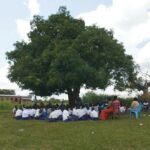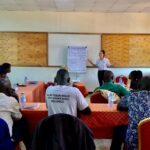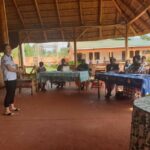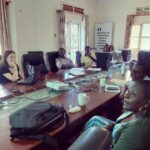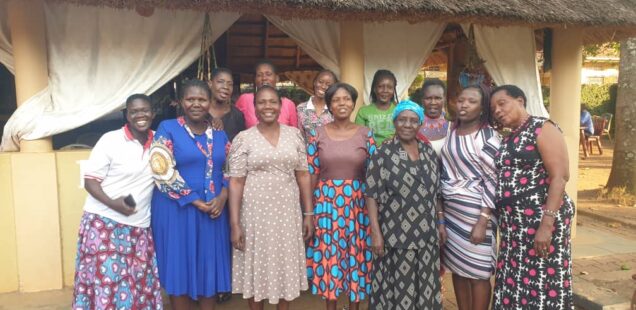
Engaging participatory action research to strengthen a network of mutual solidarity towards mediation and peace in Gulu, Uganda
In Uganda, violations of women’s rights are frequent, particularly in the post-conflict context of the north of the country, where cases of physical and psychological violence are rooted in negative cultural practices and sexist stereotypes. Some of the most affected are the women in the sub-regions of Acholi land, in the districts of Gulu, Amuru, Omoro, Nwoya and Gulu city. For almost 20 years, a Gulu-based organization called Gulu Women Economic Development & Globalization (GWED-G) has been working in the region to improve the situation by documenting and reporting cases of women’s rights violations, and by generating movements for women’s active participation in society. Its work, supported by Eirene Suisse, has had a positive overall impact. For example, self-organized groups have enabled women to generate additional income, gain access to more decision-making power, and challenge established social norms. The women in these groups also exert a positive influence on future generations of men, resulting in a lasting impact on the reduction of violence. GWED-G continues to support them in this process.
This initiative, supported by the Paul K. Feyerabend Foundation in collaboration with Eirene Suisse, will strengthen mutual aid and solidarity among GWED-G staff, among women leaders active in mediation and peace, among women from several villages, and among all stakeholders (police, health, political and cultural leaders) towards the construction of a caring society, dedicated to peace and mutual respect. The chosen methodology is that of participatory action research in regions where GWED-D is already active. Through in-depth discussions with the women concerning their needs and the forms and opportunities for mutual aid and solidarity known and experienced in their communities, the project facilitator – Ms Charlotte Ziegler, a volunteer with Eirene Suisse – will support the generation of a collective understanding of what is already being undertaken in terms of mutual aid and solidarity among GWED-G staff, but also between women active in peace mediation and village women. This collective understanding is essential if we are to understand how best to encourage solidarity at multiple levels in the local context. The knock-on effects of this project could well be high. Ms. Ziegler will make her skills available to develop the participatory action-research process and support it in encouraging local solidarity movements at multiple levels.
During the 18 months of the initiative, several one-to-one and group interviews will be organized between the facilitator and the various actors and beneficiaries of the Eirene Suisse and GWED-G initiatives, with the aim of identifying the forms and opportunities of mutual aid and solidarity, as well as the concepts in local languages linked to these issues, and their various meanings. Thus, it is envisaged that participants will produce a list of concepts in local languages related to issues of mutual aid and solidarity, document their different meanings and local cultural expressions, identify elements that are not working optimally and desired changes, and so on. In particular, the participatory action research process will be replicated among community women, to generate as much self-awareness and solidarity as possible at all levels. Participatory research action, in fact, is a result per se, as it involves a collective, shared understanding of what is possible and desirable in the contexts known by the actors involved. The expected participants are GWED-G actors, women mediators, village women… but also others, such as local health staff or police and judges, who could build a local network of people ready to collaborate towards robust and sustainable solutions to human rights violation problems. Beyond the months when it will be active, this initiative aims to perpetuate its achievements through this conscious and active network for mutual solidarity in Gulu.

